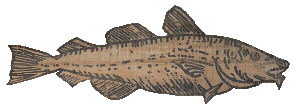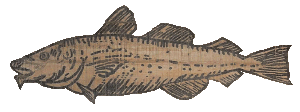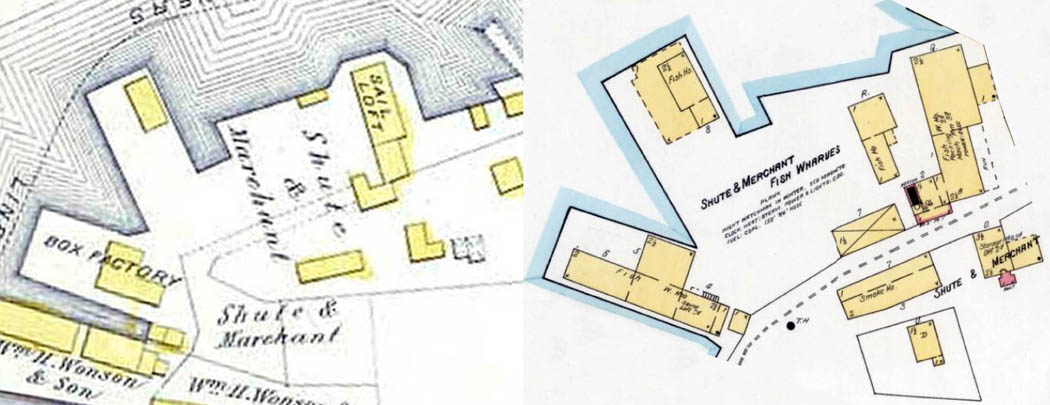 Shute & Merchant
Shute & Merchant
The men who founded Shute & Merchant acquired the land that was home to their business by way of it having been in the family for a number of decades. From about 1829 - 1848 Epes Merchant and his sons were in business under the name of Epes Merchant and Son. Originally that business was focused on "outfitting", and later expanded to include a small fleet of vessels.
An 1851 map of the Gloucester inner harbor, indicates that Epes Merchant and Son owned wharves on both the western and Parker Hill areas at the head of the harbor. It was the wharf and land located by Parker's Hill that eventually became home to Shute & Merchant. At some point in time the wharves once owned by Epes to across from those on Parker's Hill were eventually home to the Sylvanus Smith Fish Company.
One of the first homes James L. Shute owned was at 8 Prospect Court, which afforded him a view from the rear of the house across the inner harbor to the Shute & Merchant wharves, and perhaps this was the reason for the decision to live at that location.
(click on the image to learn more)
This map from 1876, while oriented differently from the others, provides some great information about the buildings on the Shute & Merchant property. All of the dimensions for the buildings have been recorded, as well as the measurements and general descriptions of the property as a whole. Clearly, this was no small enterprise, but it was also not the largest fish firm of this sort located along the Gloucester inner harbor.
A photo of the firm's smokehouse was included in the 1898 Bulletin of the U.S. Fish Commission, along with several other photos showing portions of Gloucester fish establishments. Gloucester played a significant role in the fisheries of the United States, and quite a bit of information about the industry was gathered for each of these important publications, which are still published every year.
A section from a Proctor Brothers book about the Fisheries of Gloucester notes that in 1876 there were thirty-eight fishing firms and establishments in Gloucester Harbor, Shute & Merchant among them.
(click on the image to learn more)
In 1884, Shute & Merchant was one of four fishing firms located on the old Parker's Hill area on the Land at the Head of the Harbor. A total of twelve businesses were located along the shore line of the Inner Harbor.
Two years prior to the map image, Shute & Merchant still maintained its own small fleet of fishing vessels. That year they still had 8 vessels, which was down from the 15 they owned according to an 1874 record. During the time the company had vessels, they lost three at sea. Those were the Sch. J. G. Dennis, lost in 1864, the James L. Shute, lost in April or May 1876 and the William T. Merchant, lost in December 1876.
In addition to the two vessels named for the owners, of Shute & Merchant, in 1874, they also owned the Eliza Abby, which appears to have been named in honor of their wives. Wm. T. Merchant married Eliza Wonson and J. L. Shute married Abby Merchant, Wm. T.'s sister.
(click on the image to learn more)

The map sections from 1884 (on left) and 1903 (on right) show how the size of some of the Shute & Merchant buildings changed. In 1884, a building at the far left is noted as being the “box factory”. This is where the Lewis H. Merchant Box Company, founded in 1877, was first located. Initially, the box business was an extension of Shute & Merchant as it provided a way to make the boxes needed for their fish product right on site. Later the Lewis H. Merchant box company outgrew the location on the Shute & Merchant wharves and relocated to a new facility at the corners of Cleveland and Willow in Gloucester. This gave the box company access to the railroad, which was crucial to access to materials for the boxes and shipping out boxes that had been ordered.
Sometime before 1903, the empty building area from the box company was taken over by George Merchant, Jr., who had been a master mariner had later decide to take on work that was less risky than going to sea. He converted the building into a net and seine repair shop, which eventually became the Arthur Woodbury Seine Repair business. George Merchant, Jr. had actually helped his cousin Louis H. Merchant to get the box company started, so this was not his first venture outside the work of being the captain of a fishing vessel.


